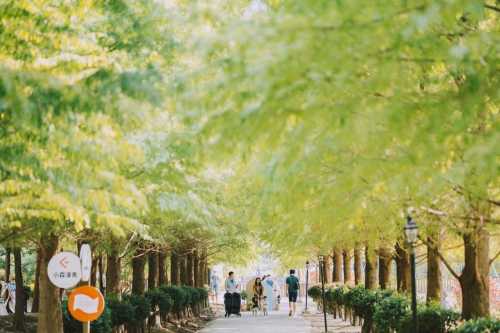Popular Trip Moments
Hsinchu's Hottest Food | Hsinchu Emei-Twelve Liao Dapi one-day tour, lake and mountain scenery, a relaxing walk, super healing! | Enter the deep mountain ruins|Xia Kaluo Ancient Road camping adventure ⛰️Looking for the beauty forgotten by time | Hsinchu Cherry Blossom Guide: Discover Springtime Romance | Hsinchu Guanxi Leofoo Village Theme Park 🎡 It is still fun to play since childhood ~ Let’s take a look at the facilities that even small children can play! | Hsinchu Cherry Blossom Guide: A Romantic Date with Pink Flower Fields | Hsinchu Cherry Blossoms: Encounter a Romantic Spring Wonderland | Embrace the Majestic Trees Along the Smangus Sacred Trees Trail | Cherry Blossom Snowfall! Discover the Hidden Flower Corridor in Hsinchu | Three-Color Floral Scenery in One Visit at Wanli Forest Garden | 🌸** A secret place for cherry blossom viewing hidden in the mountains**🌸 | Cherry Blossom Viewing Area Near Qingquan Catholic Church | Green World Ecological Farm in Beipu | Smangus (God's Tribe) | Bailan Tribe (Wufeng Township) | 🌸** Beautiful trail with natural mountain scenery and romantic cherry blossoms**🌸 | 🌸** Cherry Blossom Trail on the Left Bank of Touqian River Bridge in Hsinchu**🌸 | 🌸** Secret Sakura Land in Kansai**🌸 | Enter the pink dream! Sakura Feast in Simakus🌸 | Found by me! Taiwan limited pink romance💖 | Youluoxi Forest Garden: A dream of cherry blossoms in full bloom | Experience staying at Leofoo Resort where you can see giraffes from your window as soon as you wake up. | [Hsinchu/Zhubei] Xinqiao BBQ House 🐂|Must-eat BBQ in Zhubei! | Explore the Divine Tribe and Enjoy Cherry Blossoms in Smangus | A Tour of Beipu Old Street and the Irresistible Hakka Cuisine | Must-visit* Must-see cherry blossom spots in Hsinchu**Simakus** | Caibo Cherry Blossom Orchard - Hsinchu's most beautiful cherry blossom garden | Zhubei's quality coffee shop is upgraded again. Quick notes for dessert lovers | Visit Yungu Temple | The Pink Storm in the Taigang Tribe of Jianshi is Absolutely Stunning
Popular Travel Types
Recommended Attractions at Popular Destinations
Bangkok attraction near me | Manila attraction near me | Tokyo attraction near me | Taipei attraction near me | Hong Kong attraction near me | Seoul attraction near me | Kuala Lumpur attraction near me | Los Angeles attraction near me | Shanghai attraction near me | New York attraction near me | Shenzhen attraction near me | Osaka attraction near me | Singapore attraction near me | London attraction near me | Guangzhou attraction near me | San Francisco attraction near me | Beijing attraction near me | Macau attraction near me | Bali attraction near me | Jakarta attraction near me | Paris attraction near me | Ho Chi Minh City attraction near me | Istanbul attraction near me | Phuket attraction near me | Chicago attraction near me | Seattle attraction near me | Toronto attraction near me | Orlando attraction near me | Cebu attraction near me | Chiang Mai attraction near me
Popular Attractions
Pororo Aqua Park Bangkok | Lyon Cathedral | Karamay Oil Field | Tokyo Tower | Skyline Luge Singapore | Shanghai Film Park | Guangdong Museum | IMG Worlds of Adventure | Dubai Gold Souk | Museum of The Future | Tokyo Disneyland | Pantheon | Patong Beach | Sky Candle Peak | Wangfujing | Fanziya | Taohuayu | Rain Room | Ignacio Community Library | Geligir Batu Putih | Dom Ludowy w Bieździedzy | Ram Mandir | Grotten Van Valkenburg | Spring Creek Bird Hide | Taylor Ranch Library Park | Kościół Rzymskokatolicki pw. Trójcy Przenajświetszej | Hart Area Public Library | Skamya Primireniya | Louvre Abu Dhabi | Van Gogh Museum
Popular Restaurants in Hsinchu County
易鼎活蝦餐廳 (竹北店) | 藝奇 - 竹北光明店 | 盛宴自助餐廳 - 新竹喜來登大飯店 | 老兄牛肉麵 | 1010湘(光明一路店) | 這一鍋皇室秘藏鍋物(光明殿) | 十一街麵食館 | 風城之月懷舊餐廳 | Merry Cafe | 新橋燒肉屋(竹北店) | Beipulaojiebantiao | 三十九號北埔擂茶 | 關西臭豆腐 | Fresh Corner | 陶板屋(竹北光明店) | Duanchunzhenniuroumian | 黃金海岸的活蝦之家餐廳 | 品田牧場(竹北縣政店) | 數位天空 | 老盧小吃 | 乾杯燒肉居酒屋(新竹光明店) | 生生Kapi | 包SIR牛肉麵餃子館 | YUE LIANG XIAN SHENG GA FEI GUAN | Guanxihongdoubing | JE German Cuisine | Taiwan Beef Noodles | Yumsem宴先韓式紫菜包飯 | 長春 1930 café (原長春醫院 ) | 活力女孩
Popular Ranked Lists
Popular Best Things to Do in Jurong | Top 10 Local Restaurants in Dublin | Top 17 Local Restaurants in Siem Reap | Top 6 Best Things to Do in Ji'an | Popular Luxury Hotels Near Phuc Yen | Popular Luxury Hotels Near Goslar | Top 5 Best Things to Do in Yongzhou | Top 20 Local Restaurants in Buenos Aires | Popular Premium Hotels Near Kamyzyaksky District | Top 10 Best Things to Do in Hechi | Top 5 Best Things to Do in Tongliao | Popular Best Things to Do in Wuzhong | Top 4 Best Things to Do in Dongfang | Popular Luxury Hotels Near Fell Lapland | Popular Luxury Hotels Near Korcula | Popular Best Things to Do in Xinyu | Top 3 Best Things to Do in Tonghua | Top 3 Best Things to Do in Ziyang | Top 3 Best Things to Do in Dazhou | Popular Luxury Hotels in Paradise Island | Popular Best Things to Do in Haining | Popular Trending Restaurants in Tokyo | Popular Premium Hotels in Port Harcourt | Popular Premium Hotels Near Samosdelka | Top 10 Best Things to Do in Rongcheng | Top 3 Best Things to Do in Fuzhou | Popular Luxury Hotels Near Odiaxere | Popular Premium Hotels in En Gev | Top 11 Local Restaurants in Okinawa | Top 10 Local Restaurants in Tel Aviv
Payment Methods
Our Partners
Copyright © 2025 Trip.com Travel Singapore Pte. Ltd. All rights reserved
Site Operator: Trip.com Travel Singapore Pte. Ltd.
Site Operator: Trip.com Travel Singapore Pte. Ltd.































